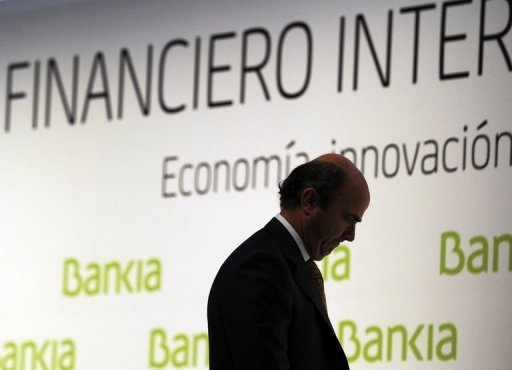Spain, sucked back into the centre of the eurozone debt crisis, is headed towards a financial crunch in 2013 that may force it to seek international help, analysts warn.
Alarm has spread on the financial markets over Spain’s rising public debt, bulging deficit, fragile banks and a slide into recession at a time of soaring unemployment.
Investors pounced in the past week, forcing the government to pay higher borrowing costs at a bond auction and snapping up securities that pay out in the case of a default on sovereign debt.
Massive lending by the European Central Bank at rock bottom rates to banks in the eurozone had secured Spain’s liquidity and mitigated the impact of Spain’s economic and fiscal woes, he said.
But greater danger lay ahead.
Ultimately, the ECB could be forced to provide Spain with more protection than its current policy of buying government bonds on the market and offering cheap three-year loans to eurozone banks, Badiani said.
The challenges facing Prime Minister Mariano Rajoy’s conservative government are daunting.
It approved a 2012 budget on April 30 that includes 27 billion euros in spending cuts and tax increases, determined to meet its targets to slash the public deficit from a runaway 8.5 percent of annual economic output last year to 5.3 percent this year and just 3.0 percent in 2013.
But analysts say the task of meeting those targets will just get harder as Spain enters recession and with official forecasts that the jobless rate will rise to 24.3 percent this year from 22.85 percent at the end of 2011.
Large annual public deficits have rapidly pushed up the accumulated public debt, expected to rise to 79.8 percent of economic output this year from 68.5 in 2011.
The banking sector was vulnerable to losses on stricken real estate assets accumulated before the 2008 property bubble collapse, they warned, and it “may need a bailout to assist restructuring”.
Edward Hugh, independent economist based in Barcelona, said international investors were convinced that Spain would need to restructure its debt at some point in the next 10 years.
But the crisis could come sooner, he said, casting serious doubt on Madrid’s ability to meet its deficit-cutting target for 2013.
Hugh warned a crunch could even come this year as bond yields rise, saying it was still unclear how the government could finance its plans to recapitalise Spain’s banks.
Spain did not face an immediate collapse because the ECB would step in, Hugh added.

COMMENTS
Please let us know if you're having issues with commenting.